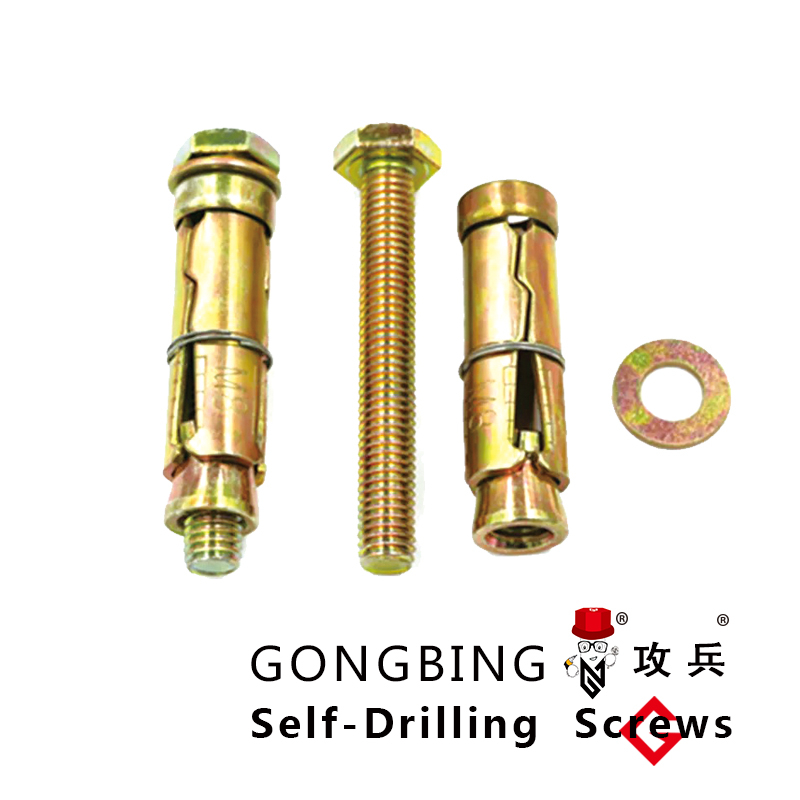Understanding the Benefits of Self-Tapping Wafer Screws for Various Applications
Understanding Self-Tapping Wafer Screws Features and Applications
Self-tapping wafer screws are essential fasteners in various industries due to their unique design and functional capabilities. Unlike traditional screws that require a pre-drilled hole, self-tapping screws can create their own hole as they are driven into materials. This feature makes them particularly valuable in construction, manufacturing, and automotive applications.
Design Characteristics
The self-tapping wafer screw is characterized by its unique head shape and threading. The wafer head is typically flat and broad, providing a large bearing surface, which helps distribute the load and reduces the risk of stripping. The design allows for a cleaner appearance when the screw is installed, making it ideal for visible applications. The screw's threaded shaft is engineered to cut through material, forming a tight fit without the need for additional tools, making it a time-efficient choice for assemblers and engineers alike.
Material Composition
These screws are usually made from high-quality steel, sometimes with a galvanized or zinc plating to enhance corrosion resistance. Depending on the specific application requirements, they can also be produced from stainless steel or other materials to withstand environmental factors such as moisture or chemicals. The choice of material significantly influences the screw's durability and longevity, ensuring reliability in various settings.
Applications
Self-tapping wafer screws are versatile and find applications across numerous sectors. In the construction industry, they are commonly used for fastening metal components, roofs, sidings, and fixtures. Their ability to penetrate tough materials without pre-drilling allows for quicker assembly, enhancing productivity on site.
self tapping wafer screws

In the automotive industry, these screws are used in manufacturing body panels, securing electronic components, and fastening interior assemblies. The efficiency of self-tapping wafer screws can significantly reduce assembly time, which is crucial in a competitive market.
Electronics is another domain where self-tapping screws are prevalent. They secure circuit boards and enclosures, ensuring that components remain securely in place while reducing the risk of damage during assembly. Their design prevents overtightening and potential damage to fragile electronic parts.
Installation and Benefits
One of the major advantages of self-tapping wafer screws is their ease of installation. Users can drive them in with a power drill or a hand screwdriver, saving time and reducing labor costs. Additionally, the self-threading design minimizes the risk of damaging the material being fastened, which is particularly important in soft materials like plastic or thin metals.
Moreover, self-tapping wafer screws provide strong and reliable joints, which contribute to overall structural integrity. They can also be easily removed and reused, offering flexibility in assembly and maintenance.
Conclusion
In summary, self-tapping wafer screws are an invaluable fastener in modern applications, from construction to electronics. Their unique design, made from durable materials, provides benefits such as ease of installation, reliability, and versatility. As industries continue to evolve, the significance of these screws in promoting efficiency and performance will undoubtedly grow, making them a staple in many engineering and manufacturing processes. Understanding their features and applications can help professionals make informed choices for their projects, ensuring successful outcomes and high-quality results.
-
Weatherproof Plastic Expansion Anchors for OutdoorNuusJun.06,2025
-
Sustainability in the Supply Chain: Eco-Friendly TEK Screws ProductionNuusJun.06,2025
-
Load-Bearing Capacity of External Insulation FixingsNuusJun.06,2025
-
Double Head Bolts: Enhancing Efficiency in Industrial MachineryNuusJun.06,2025
-
Corrosion Resistance in Chipboard Screws: Coatings for Wholesale DurabilityNuusJun.06,2025
-
Butterfly Toggle Bolts : Enhancing Structural ResilienceNuusJun.06,2025
